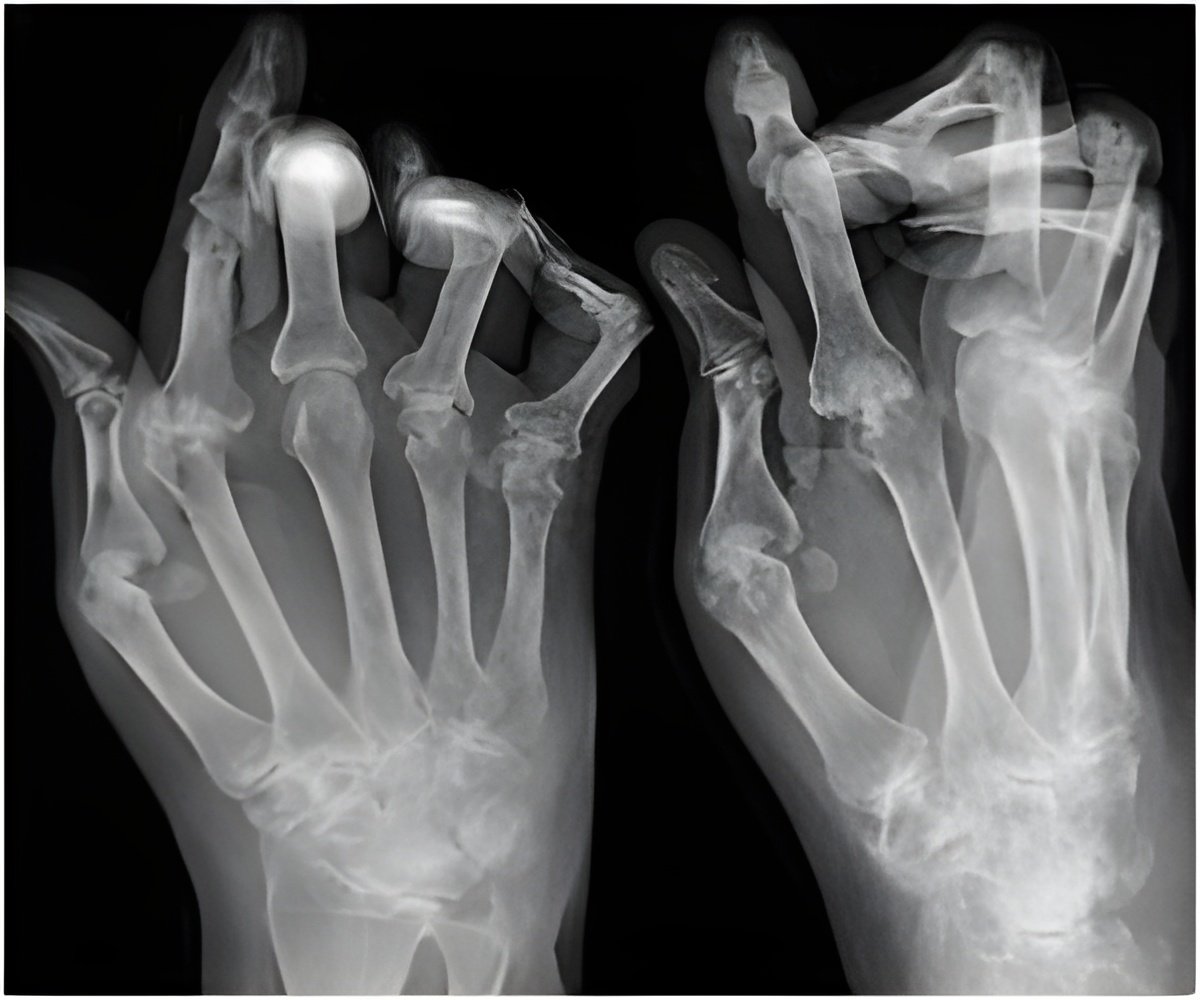A new study finds delaying treatment for rheumatoid arthritis could greatly increase the likelihood that patients will suffer joint damage and experience disability two years out.

"We need to educate people diagnosed with rheumatoid arthritis about this. Some want to delay treatment because they are afraid. They haven't wrapped their heads around the fact that they have this disease, or they are reluctant to start taking medication. Some resort to non-medicinal approaches, many of which have limited effect," said Dr. Bykerk, lead investigator and a rheumatologist at Hospital for Special Surgery.
"Unfortunately, I have seen too many people delay effective treatment approaches and they come back a year later very disappointed, often with joint damage that could have been prevented. The longer you have inflammation in the joints, the more likely you are to have joint damage, and it is going to impact how you function down the road," she said.
Rheumatoid arthritis (RA) is a systemic autoimmune disease that mainly affects the joints. The current standard of initial therapy is early use of antirheumatic drugs, which have been proven effective at reducing RA-related inflammation. So far, alternative medicines and weaker therapies have not proven to be effective for the disease in well-designed placebo-controlled clinical trials.
The new study identified patients with early RA, and classified them six months later as having reached "low disease activity," or not. Low disease activity, the goal early in the course of the disease, means that joint pain, swelling and other markers of inflammation are markedly reduced. When comparing patients at two years, investigators observed that those whose RA had reached a state of low disease activity by six months had much better functional ability at two years. In a related study from this group, function was found to be even better at two years in patients who had reached full remission.
The study was conducted using data from the Canadian early ArThritis Cohort (CATCH). Dr. Bykerk is chair and director of CATCH, an ongoing multicenter research project in Canada that has been collecting information on patients with early inflammatory arthritis. Patient data have been collected at 19 clinical sites across Canada, in both teaching and community-based hospitals, as well as clinics. So far, the project has collected data on 1,800 patients.
In analyzing the impact of achieving early low disease activity, the researchers adjusted for potential confounding factors such as baseline function and disease activity, as well as age, sex, and use of disease-modifying antirheumatic drugs (DMARDS), steroids, and biologics. More than 90% of patients received DMARDs. The researchers also controlled for levels of rheumatoid factor (the autoantibody most relevant to rheumatoid arthritis) and erythrocyte sedimentation rate (a measure of inflammation). An exploratory analysis examined whether socioeconomic status, pain, and fibromyalgia had an impact on disability.
"We believe there is a window in which people have a much better chance of getting rheumatoid arthritis under good control, often with less intense therapy, and the window is within the first three months of developing joint inflammation," said Dr. Bykerk. The new study results, she said, should prompt doctors to warn patients about the hazards of delaying therapy and follow patients more often in the initial phases of treatment.
"I believe that patients should meet with their arthritis specialists often in the early phases of RA so that they can assess how their patients are responding to treatment," Dr. Bykerk said. "The longer patients wait, the more likely it is that they will need more intense therapy to achieve the same control of joint inflammation."
Previously, studies have shown that better disease control in the first year predicted less future disability. This study shortens the gap.
Source-Eurekalert
 MEDINDIA
MEDINDIA




 Email
Email










